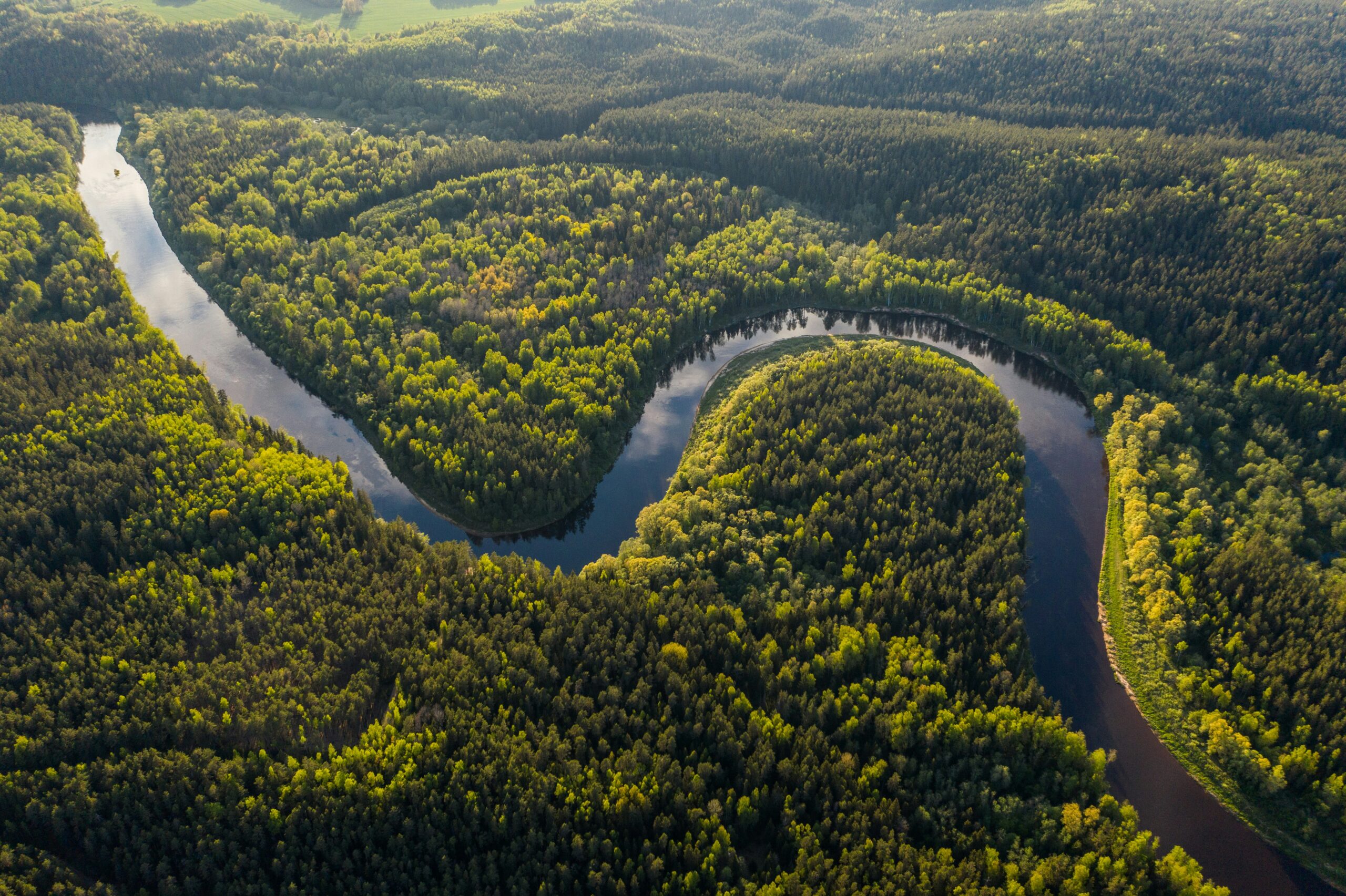 Image description: Aerial shot of the Amazon river. Severe drought hit the Amazon basin, peaking from July to September. Photo by Ivars Utināns on Unsplash
Image description: Aerial shot of the Amazon river. Severe drought hit the Amazon basin, peaking from July to September. Photo by Ivars Utināns on Unsplash
A report published jointly by Size of Wales and WWF Cymru highlights the links between the Welsh food system and the destruction of tropical forests, human rights abuses, and pollution.
Titled Food, Forests and Injustice: The Hidden Link Between Wales and Brazil, was released ahead of COP30 in Belém, Brazil, known as the “Forest COP”, and suggests tree-felling in the Amazon rainforest is partly to blame for pollution that is plaguing UK rivers such as the Wye.
The report says soy, which is imported from vast plantations overseas and used as livestock feed, is a “hidden link” to the poor state of many waterways in Wales, and around the UK.
The report says Wales imports around 190,000 tonnes of soy and 12,000 tonnes of beef every year, and early three-quarters of the soy comes from countries that are at high risk of deforestation and social issues. The report highlights rainforest destruction continues at “an alarming pace”, pointing to recent data suggesting 6.7 million hectares of tropical forest were lost in 2024. Soy plantations are also linked to the widespread displacement of indigenous people from their ancestral lands, a system the report says Wales contributes to every time its buys “cheap chicken fed on soy or buy corned beef from South American countries linked to deforestation risk”.
Soy is also high in phosphorus, which becomes a pollutant when animal manure spread on land runs off into rivers. Runoff has become a significant problem in regions like the River Wye, where almost 23 million chickens are raised in the river’s catchment area. Several of Wales’ other most protected river networks, including the Usk and Cleddau, are also failing to meet targets around phosphate pollution.
What now?
The report calls on the Welsh government to support farmers through its new subsidy system, the Sustainable Farming Scheme, to reduce reliance on imported soy feed. It wants to see the public sector and businesses to commit to deforestation-free supply chains by 2028, which Wales’ Future Generations Commissioner Derek Walker has echoed. The report says reductions in meat and dairy consumption should be promoted, alongside the implementation of an outright ban on corned beef from Brazil.
The reported pointed to several positive examples in Wales already tackling these issues, such as Caerphilly Council’s mandated deforestation-free criteria for food procurement and Monmouthsire council becoming Wales’ first Deforestation Free Champion council.